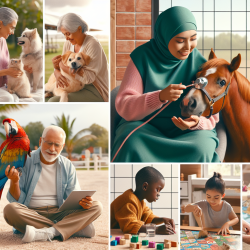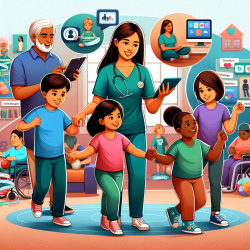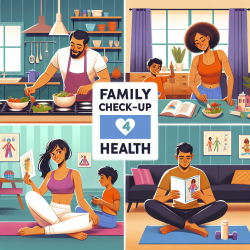As an online therapy provider at TinyEYE, you're always looking for ways to improve your practice and make a greater impact on the students you work with. One fascinating area of research that can enhance your skills is the study of Human-Animal Interaction (HAI). Recently, a research paper titled "Reliability and Validity Assessment of the Observation of Human-Animal Interaction for Research (OHAIRE) Behavior Coding Tool" has provided some insightful findings that can be implemented in your therapeutic practice.
The OHAIRE tool is designed to capture the behavior of children when they interact with social partners and animals in naturalistic settings. It focuses on various behavioral categories such as emotional displays, social communication behaviors, and interactions with animals or control objects. Here are some key takeaways from the research that you can apply to your practice:
1. Enhanced Observation Skills
The OHAIRE tool emphasizes the importance of detailed and systematic observation. By adopting a structured approach to observing behaviors, you can gain a more accurate understanding of your students' interactions and emotional states. This can help you tailor your interventions more effectively.
2. Reliable and Valid Assessments
The research highlights the excellent reliability and validity of the OHAIRE tool. Implementing such a reliable tool in your practice ensures that your assessments are consistent and accurate, which is crucial for tracking progress and making informed decisions about your therapeutic interventions.
3. Understanding Emotional Displays
One of the significant findings of the OHAIRE tool is its ability to capture various emotional displays, such as smiling, laughing, and negative expressions. By paying close attention to these emotional cues, you can better understand the emotional well-being of your students and provide support where needed.
4. Social Communication Behaviors
The tool also focuses on social communication behaviors directed toward adults and peers. Observing these interactions can give you insights into your students' social skills and help you develop strategies to enhance their social interactions.
5. Interactions with Animals
The research underscores the positive impact of animal-assisted interventions. By incorporating animals into your therapy sessions, you can foster a more engaging and supportive environment for your students. Animals can serve as a source of comfort and motivation, encouraging students to participate more actively in therapy.
Encouraging Further Research
While the OHAIRE tool has shown promising results, the research also highlights the need for further studies to generalize its findings across more settings and age groups. As a practitioner, you can contribute to this growing field by documenting your observations and sharing your experiences with the broader community. Collaborating with researchers and participating in studies can help refine the tool and expand its applicability.
By implementing the outcomes of this research and encouraging further exploration, you can enhance your skills as a practitioner and make a meaningful difference in the lives of your students. To read the original research paper, please follow this link: Reliability and Validity Assessment of the Observation of Human-Animal Interaction for Research (OHAIRE) Behavior Coding Tool.










